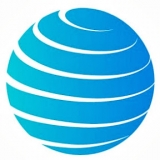PRESS CONFERENCE - Wiyi Yani U Thangani (Women's Voices) report
NATIONAL PRESS CONFERENCE - Wiyi Yani U Thangani (Women's Voices) Securing Our Rights, Securing Our Future Report 2020
Thursday, 10 December 2020
NYOONGAR PATROL SERVICE, PERTH
(Opening line in Bunuba)
I am extremely proud and excited to announce the release of the Wiyi Yani U Thangani—meaning Women’s Voices in my language Bunuba—Securing Our Rights, Securing Our Future Report 2020. What I hold in my hands and present to you all today is a landmark report; it is no ordinary document.
It is the culmination of a multi-year partnership between the Australian Human Rights Commission and the National Indigenous Australians Agency. But first and foremost, Wiyi Yani U Thangani belongs to our First Nations women and girls. This is their report.
It is the first national engagement project of its kind in 34 years, since the Women’s Business Report in 1986. This was intentionally a project without agenda. It was driven by our women and girls, who set the tone and determined the dialogue. The result is a report shaped by their candid and fearless conversations that is not confined to a single sector or someone else’s interpretation of their lives. Like them, the Wiyi Yani U Thangani report is full and expansive in its scope.
I’ll give you a taste of what women and girls said and what has come to frame this report, and I quote:
‘women are the social fabric’, ‘the heart and soul of our communities’, ‘the embodiment of women itself is strength’, ‘we are teachers, we are leaders, we are dancers, we are singers’.
From Cairns, Hobart, the Torres Strait and Geraldton across Wiradjuri country and Noongar, Arrente, and Miriuwung lands, this is how First Nations women and girls define who they are, on their own terms in Australia today, in 2020.
The stories of our women and girls thread the five thematic parts of the Wiyi Yani U Thangani report together.
They have spoken of the need for systems which recognise and support their holistic realities. The report reflects this—it spans the major areas of our entwined existence, from healing and recovery to the practice of Law and culture; the mitigation of climate change; educational journeys and the growth of First Nations-led economies.
Against this dynamic backdrop, in every chapter, Wiyi Yani U Thangani charts the imposition of Western systems. Since colonisation, the structures that have come to govern over us are so divorced from our realities that they continuously fragment our lives and relegate us to the margins. In a system without voice and control, women and girls describe being trapped in intergenerational poverty and powerlessness, increasingly vulnerable to the harms of violence and addictions that manifest from the despair of dispossession; from unresolved trauma.
These structures that are detached are unresponsive. They deepen cycles of crisis and punitive interventions and silence our women even when their pain is deafening.
Make no mistake, our women are not to blame for this narrow frame of hurt and pain, which barely scratches the surface of their stories. Systems that fail to value and invest in the incredible worth and consequence of our women and girls’ actions are broken. Wiyi Yani U Thangani proves that time and again.
This year we have been forcefully reminded of how countless Black lives are lost to these broken systems, where the boot of power constricts our breath so we cannot speak. And still, we rise up. First Nations women never stop fighting even when exhausted, driven by their uncompromising pursuit for a society capable of realising basic rights and ideals of equality, inclusiveness and respect.
Let 2020 be the turning point, where it is recognised that all Australians hold these ideals in common, and when we stand together our fight is shared and can take us toward the future, we all want and deserve. But, to be equals on this journey, we must overcome inequalities and institutional discrimination by guaranteeing our women and girls self-determination. That is the call of our women’s voices, of Wiyi Yani U Thangani.
In responding to this call, we have put forward seven overarching structural reform recommendations. They include such things as designing a First Nations women and girls’ National Action Plan, establishing an advisory body, and setting ambitious targets and benchmarks for our women and girls to lead across all sectors.
These are recommendations to enable our women and girls to be the change-makers who dismantle the structures that silence and reconstruct frameworks that empower.
Ultimately, hearing and responding to their voices is to give proper recognition to what we continuously overlook and undervalue: that our women are the backbone of our societies and have been for millennia. Their hard efforts and legacies weigh heavy on the arc of our moral universe. With their voices elevated to Australia’s corridors of power, now is the time to act.
Read Wiyi Yani U Thangani. Listen and respond to the voices of our women and girls so we can design the policies and legislation that matches their needs and meets their aspirations.
My message to our First Nation women and girls, carried throughout the report, is: dream big, aim high, be ambitious and never stop believing that your actions can remake a society that embraces and celebrates all of who we are.
I know we belong to an Australia that can commit to this; that our fellow citizens will walk alongside you in striving to achieve shared ideals, and that they will put in the hard yards to bend the arc towards justice for us all.

